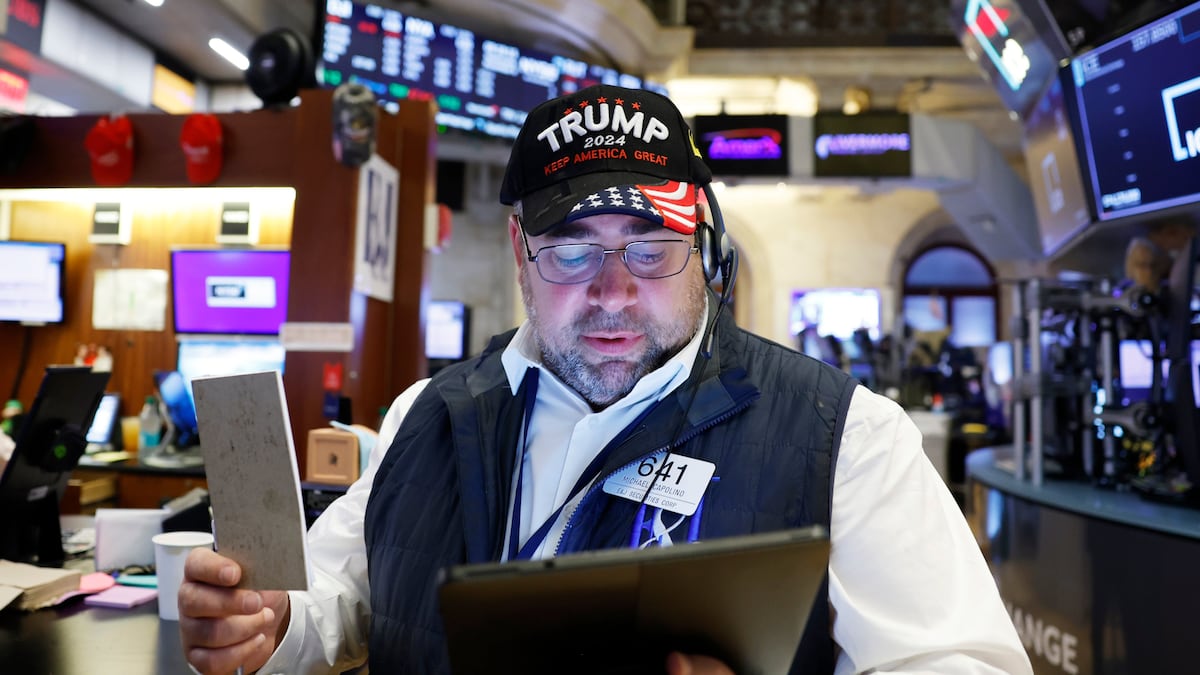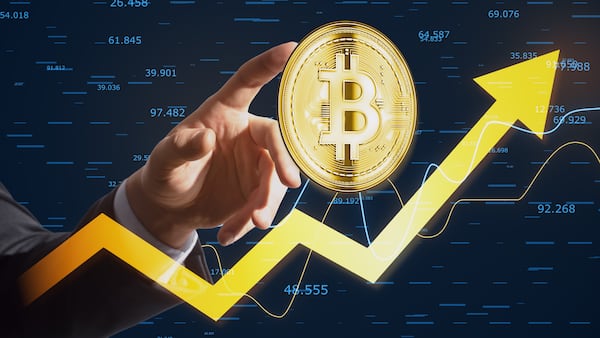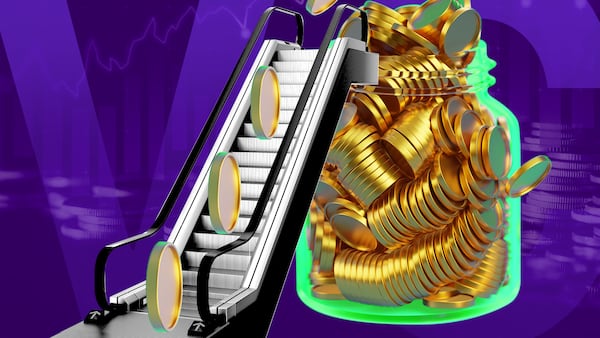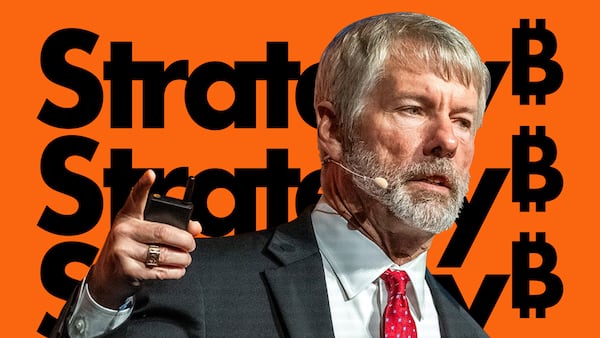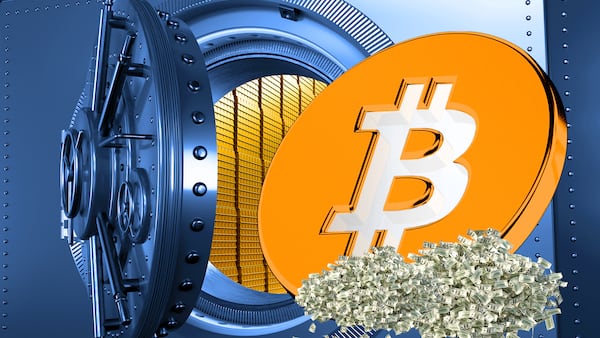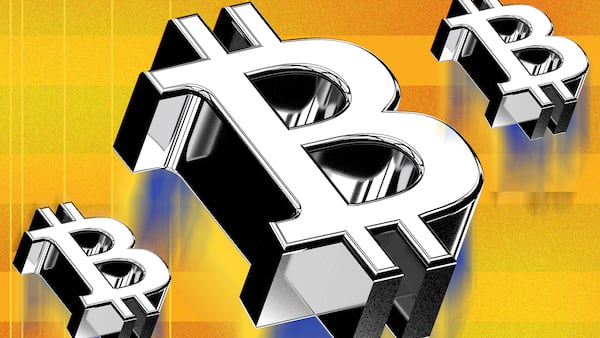- Bitcoin has risen 7% since the Trump administration introduced its tariffs.
- Traditional markets shuddered, and the dollar index has plummeted 5%.
- Experts lay out why Bitcoin is bucking the trend.
At nearly $91,000, Bitcoin has just recouped all the losses incurred by US President Donald Trump’s bellicose tariff regime.
The $1.7 trillion cryptocurrency even added 7% since “Liberation Day” on April 2, when the Trump administration trotted out double-digit trade taxes on roughly 90 different countries.
The same can’t be said for large swathes of the market.
The S&P 500, an index of America’s largest companies, and the Nasdaq are both down 7% over the same period. Meanwhile, gold, a safe-haven asset for many investors, enjoyed a record run and hit a new high of $3,500 on Tuesday morning.
Does that mean Bitcoin is headed down the same road?
Not just yet, Carlos Guzman, an analyst at market maker GSR, told DL News.
But the latest market dynamic is certainly painting a bullish picture for Bitcoin.
“The ongoing macro turmoil is providing some of the strongest validation we’ve seen for Bitcoin’s potential role as an alternative, non-sovereign monetary asset,” said Guzman.
Here are the three catalysts driving Bitcoin’s divergence.
Corporate warchests
As uncertainty looms over capital markets, several corporations have continued to scoop up Bitcoin.
Strategy, the business analytics firm formerly known as MicroStrategy, scooped up more than $840 million in Bitcoin between April 7 and April 20, according to company filings.
Likewise, MetaPlanet, another Bitcoin treasury company listed in Japan, bought up another $28 million in Bitcoin on Monday. That brings its total to over $422 million.
GameStop, the retail video game outlet, also earmarked $1.5 billion to buy up Bitcoin on April 2.
There are nearly 100 different public companies that have added Bitcoin to their balance sheet, according to data from Bitcoin Treasuries.
“These are likely helping bid up BTC prices while equities are suffering, and may be aiding broader BTC investor confidence,” Guzman told DL News.
Dollar crisis
The Trump administration’s trade policies have also weakened the dollar against other world currencies.
The US Dollar Index shows the greenback has dropped more than 5% since April 2.
“There’s also growing scepticism around fiat stability — and when the dollar loses value, Bitcoin typically benefits,” Ryan Chow, co-founder and CEO of Bitcoin staking platform Solv Protocol, told DL News. “That correlation is beginning to reassert itself.”
Trump’s comments to oust Jerome Powell, chair of the Federal Reserve, has also startled investors.
Interfering with the central bank’s monetary policy would be an unprecedented breach of the Fed’s independence.
That’s played a key role in Bitcoin’s latest stability, according to some experts.
“In the midst of this, investors worldwide may be looking at Bitcoin favourably as an alternative store of value that’s not tied to any particular country or monetary union,” GSR’s Guzman said.
Regulatory clarity
Three key pieces of legislation in the US are also paving the way for more institutional investors to enter the market.
Two stablecoin bills, which would allow banks and non-banks to issue dollar-pegged cryptocurrencies, are already turning heads on Wall Street.
Brian Moynihan, the CEO of Bank of America, said that the bank would “get into that business” once it becomes legal.
A market structure bill, which defines which regulatory agency oversees which cryptocurrencies, would also provide clearer rules for new entrants looking to join the industry.
“Crypto is back in business within leading global banks,” Bernstein analysts said in a Monday note.
They added that crypto opens up core new opportunities for institutional players, including crypto custody services, trading, and cross-border payments.
Hold the celebrations
All of these factors have contributed to Bitcoin’s latest rise.
Still, others urge caution around claims that the world’s largest cryptocurrency is now finally a world apart from the rest of the market.
“One shouldn’t read too much into very short-term divergences like Bitcoin’s recent lead over the S&P 500,” Arthur Breitman, co-founder of Tezos, told DL News.
“When it happened a few weeks ago, celebration of decoupling was cut short with a sudden correction.”
Liam Kelly is a Berlin-based reporter for DL News. Got a tip? Email him at liam@dlnews.com.
